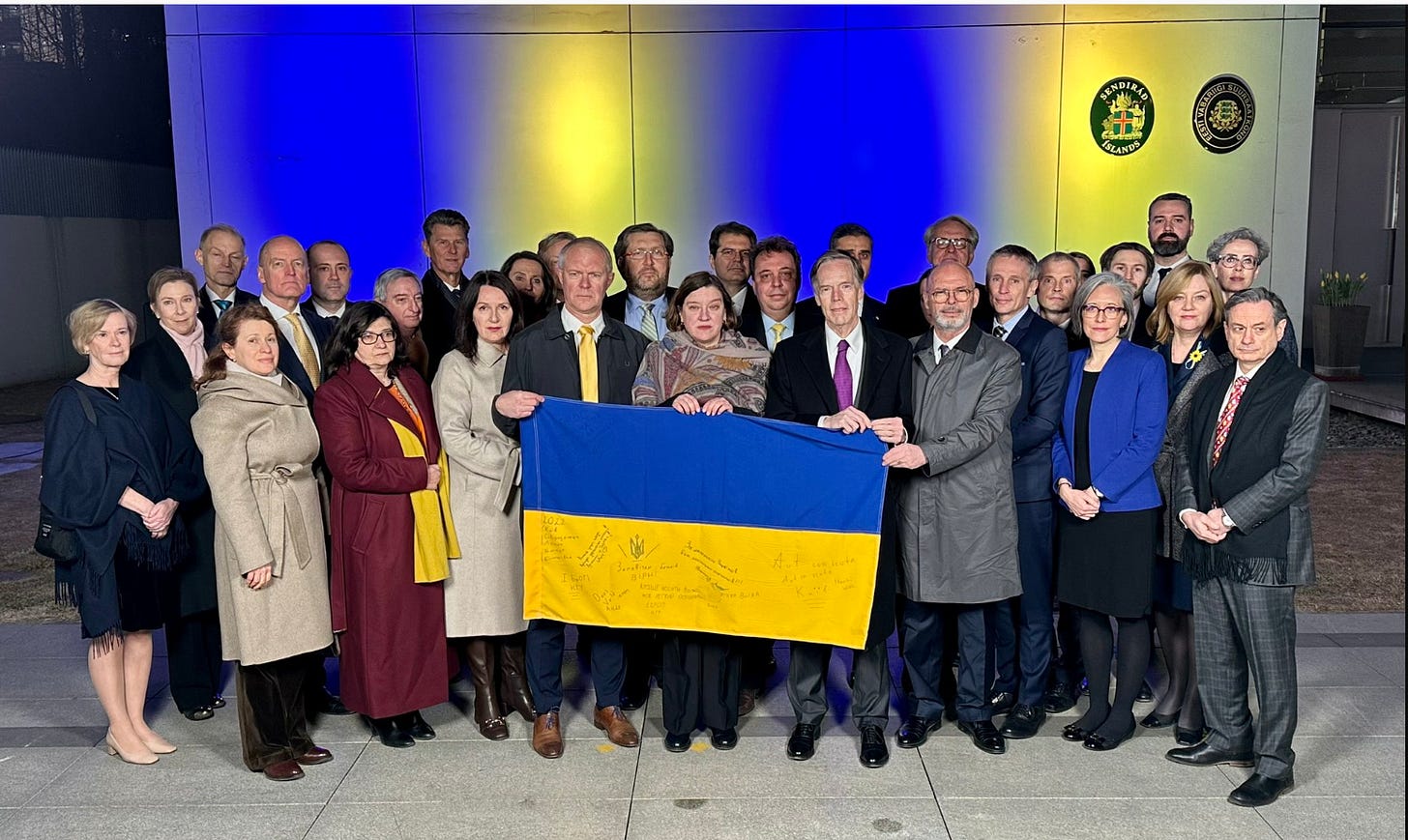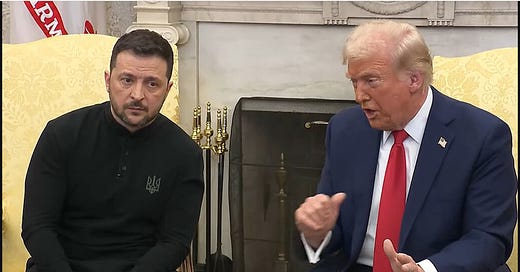Eighty years of American-led global diplomacy unraveled in just ten minutes during the Oval Office meeting between Donald Trump, Vice President JD Vance, and Ukrainian President Volodymyr Zelenskyy on February 28, 2025. What was meant to be a high-level diplomatic engagement to reinforce U.S. commitments and secure a minerals agreement with Ukraine turned into a shocking instance of diplomatic sabotage. Instead of reaffirming America’s leadership, Trump and Vance conveyed a message of abandonment, signaling to the world that Ukraine—and, by extension, U.S. alliances—were negotiable.
For nearly a century, U.S. diplomacy has been characterized by strategic leadership and a commitment to a global order that curtails authoritarian expansion. After World War I, the U.S. took on a limited role in international affairs, but following World War II, it fully accepted its status as a superpower. The creation of NATO, the Marshall Plan, and the Truman Doctrine solidified the United States as the cornerstone of global security, ensuring that democracy was upheld and authoritarian aggression was kept in check.
The Cold War solidified America’s position as the leader of the free world, fostering alliances, deterring Soviet expansion, and creating a security network that upheld global stability. This framework was not solely focused on American interests; it aimed to ensure a balance of power that thwarted global conflicts and promoted economic and political stability. Through bipartisan leadership, the U.S. honored its commitments to allies, reinforcing the notion that America was a dependable partner in times of crisis.
Yet, in one Oval Office meeting, Trump shattered that foundation. His dismissive attitude toward Zelenskyy, intensified by Vance’s openly hostile rhetoric, was more than a diplomatic misstep—it was a calculated decision to undermine U.S. foreign policy. By questioning Ukraine’s gratitude, Trump and Vance effectively signaled to both allies and adversaries that America’s commitments were conditional, reliant not on strategic necessity but on personal and political whims. Instead of reinforcing deterrence against Russia, they fostered uncertainty, emboldening aggressors who thrive on doubt and division.

The immediate consequences of this diplomatic failure were evident in the global response. Leaders from Europe and Canada hurried to reaffirm their support for Ukraine, issuing statements that not only condemned Russian aggression but also implicitly distanced themselves from the U.S. position. Germany, Canada, and NATO leadership reiterated their unwavering commitment, highlighting the growing fear that America was no longer a reliable pillar of global security. European leaders have already confronted the reality of potential U.S. isolationism under Trump, but this moment made it unmistakably clear that America was stepping back from its leadership role.
The long-term consequences of this diplomatic disaster could be even more profound. For decades, American credibility has been the foundation upon which alliances were built. When the U.S. committed, whether through NATO, bilateral agreements, or economic partnerships, it was understood that it would uphold its word. That trust is now in jeopardy. If the U.S. can so easily waver on its support for Ukraine, what does that mean for Taiwan, South Korea, or NATO itself?
Russia and China will undoubtedly view this moment as an opportunity. Vladimir Putin has long aimed to test Western unity, and Trump has just provided him with the clearest indication yet that the U.S. may not remain steadfast. Meanwhile, China, which has been closely observing how the West responds to Ukraine, might interpret this as a green light to escalate its ambitions in Taiwan. If American commitments are uncertain, authoritarian regimes will feel empowered to act while U.S. allies scramble to fill the resulting vacuum.
Trump’s actions in the Oval Office didn’t just harm U.S.-Ukraine relations; they raised doubts about the entire post-World War II order that has kept the world relatively stable. Unlike previous instances where U.S. credibility was questioned—like Vietnam, Iraq, or Afghanistan—this wasn’t a debate about military intervention. It was a matter of whether America would honor its commitments and support its allies. The answer Trump gave was clear: alliances are no longer guaranteed.
For 80 years, American diplomacy was founded on credibility, alliances, and a commitment to a rules-based order. In just ten minutes, Trump and Vance jeopardized it all, reducing decades of hard-earned influence to a reckless moment of isolationism. The world took notice, and history will remember when America willingly abandoned its role as the defender of democracy. The consequences may not be immediately apparent, but they will reverberate for years—leaving allies uncertain, adversaries emboldened, and the future of U.S. global leadership in doubt.





At some point the notoriously fickle American electorate will have to realize that the consequence of electing T. Rump is the inevitable decline of U.S. influence in the world. Good luck contending with a replay of 9/11 with a degraded intelligence capability and a force less than optimal for conditions.